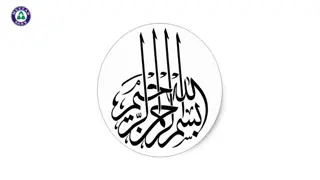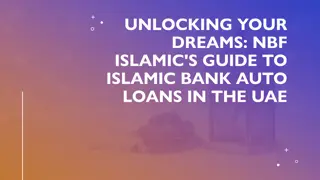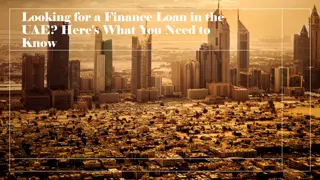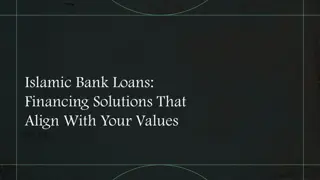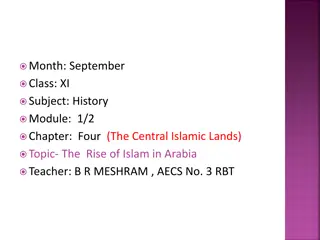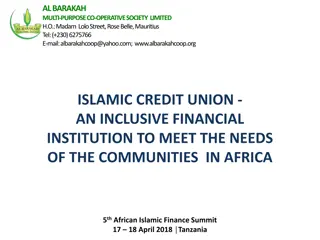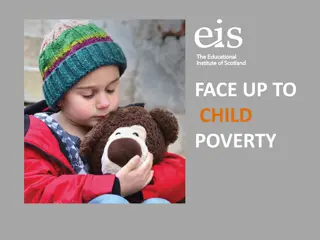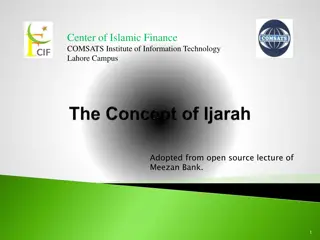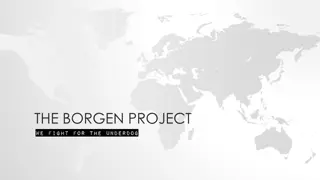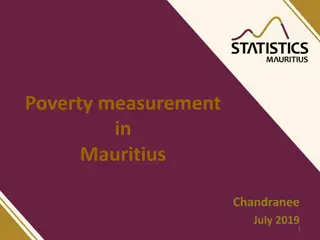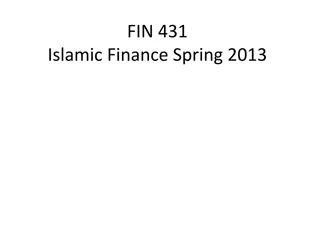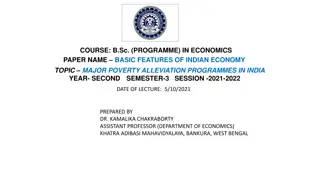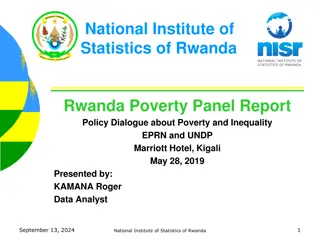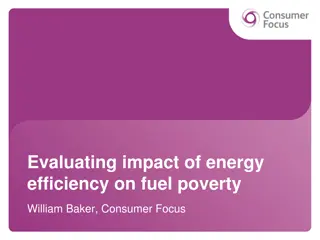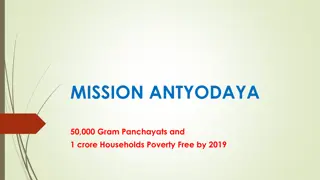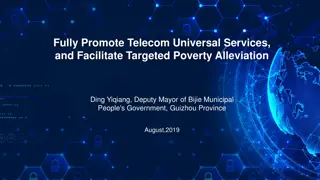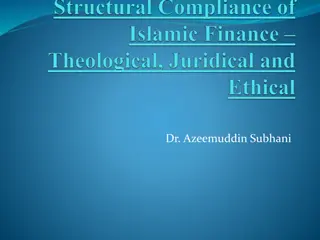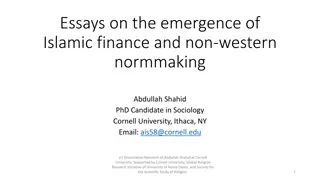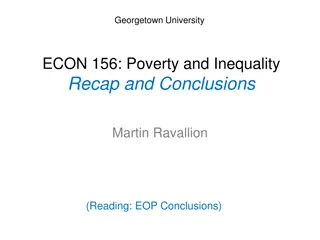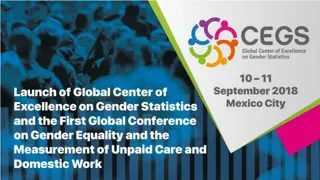Islamic Finance for Poverty Alleviation: Strategies and Impact
Islamic finance offers unique solutions for poverty alleviation through mechanisms such as Islamic banks providing financing as traders, lessors, or partners, and developing micro credit schemes. These approaches aim to enhance income generation, reduce unemployment, and foster socio-economic development. Additionally, Islamic banking promotes gender equality, education, and human resource development as essential components in combating poverty on a global scale.
Download Presentation

Please find below an Image/Link to download the presentation.
The content on the website is provided AS IS for your information and personal use only. It may not be sold, licensed, or shared on other websites without obtaining consent from the author. Download presentation by click this link. If you encounter any issues during the download, it is possible that the publisher has removed the file from their server.
E N D
Presentation Transcript
POVERTY ALLEVIATION IN ISLAMIC By SABRA I. MACHANO Executive Director Warrior Women Foundation FINANCE
POVERTY ALLEVIATION The UN Millennium Development Goals (2005) define the poor as individuals living in households with com- mand over no more than USD1 per day per person valued at international prices. Extreme poverty is currently defined as those who live on 1 or USD1.25. This is an example of an absolute poverty line. Most countries define their own absolute poverty. Islam, being a universalistic religion meant for the entire humanity, its agenda or solution regarding poverty is not limited to Muslims; rather it embraces the whole world. Concentration of wealth and extreme inequality leads to poverty
POVERTY ALLEVIATION Education and human resource development adequate and appropriate investment in education as part of a broader human resource development goal. In most countries, including in the Muslim world, there is mere lip service but proper and adequate human resource development and the creation of a vibrant educational system and infrastructure are absent. Gender It is now well established that even within the pool of those in poverty, women share the disproportionate brunt of suffering. Developed countries have been more gender-egalitarian and facilitated the ongoing participation of women. IFIs have to come up with more gender-conscious and gender-sensitive programs and pathways, including microfinancing and gradually through SMEs. While economic incentivisation can work better through proper public policy regimes, there is no reason why IFIs themselves cannot come up with incentives to engage qualified women in entrepreneurial ventures.
ISLAMIC FINANCE AND POVERTY ALLEVIATION Islamic banks, instead of being lenders, will now provide financing by coming in as traders (Murabaha), lessors (Ijara) or partners (Mudaraba; musharakah) thereby providing Technical- No-How and also there will be greater transparency in their transactions with clients depositors as well as fund-seekers-due to compliance with the avoidance of Gharar (ambiguity) resulting in clear contracts for every transaction. Through Islamic microfinance, there is a tremendous potential to tap into often-scattered Islamic donor streams, such as Zakat, Sadaqat, and waqf, which would be channel towards strategic, and impact oriented goals. The corporate social responsibility concept of the Islamic banking system may propel its socio- economic contributions to the economy, particularly through the provision of free services to the indigent in the society. Through this process, Islamic banking contributes to the fostering of development in the financing of socio-economic programmes, such as, youth skills acquisition programmes, women empowerment, and micro and small-scale industrial development programmes.
ISLAMIC FINANCE AND POVERTY ALLEVIATION Islamic banking concept also contributes significantly in developing micro credit schemes, which have a greater tendency to alleviate poverty by enhancing the development of income generation and reducing unemployment and hence poverty among the people. Another method of alleviating poverty through Islamic banking concept has to do with the flow of development funds provided by Islamic Development Bank (IDB), which provides development funds for infrastructural projects to member countries from Islamic banking system of the world. It is expected that with the growth of Islamic banking system, it will provide access to the flow of such funds, which will enhance infrastructural development and poverty alleviation in the long run.
POVERTY ALLEVIATION CONVENTIONAL BANKING ISLAMIC FINANCE - harmonized and approved regulatory standards that banks around the world follow, making it easier for them to expand and conduct operations in different countries - sharia harmonization at global level is hindering the rapid growth of Islamic banking products - Islamic banking has been prohibited from investing in financial markets that are full of speculative elements. In this regard, Islamic banking is expected to provide more financing products aimed at enhancing the real sector. - main causal of the financial crisis that led to the rise of Islamic banking as we know it now - it tends to benefit those with collateral
CASE STUDY EXAMPLES OF POVERTY ALLEVIATION VIA ISLAMIC FINANCE SUCCESS CHALLENGES - The key success of Malaysia s infrastructural developments is her use of the Islamic financial products. - increased in humanitarian and social services -increase in deposits - Business and trade activities should be undertaken on the basis of fair and legitimate profits. -prohibition of interest and gambling - The industry lacks a clear strategy and direction to help achieve its potential - Sharia harmonization at global level - lack of knowledge of the systems and its penetration - The search for the missing links between Islamic finance and broader economic development is continuing; where the relevant fields are delinked from maqasid al-Islam and where Islamic finance as a field is marching ahead without parallel progress in social sciences in general and economics and business in particular from the Islamic perspective.
WARRIOR WOMEN FOUNDATION AND POVERTY ALLEVIATION - EMPOWERMENT - ACCESS TO MARKETS -TRAINING - ACCESS TO FINANCE
CONCLUSION The discourse on Islamic economics and finance deals with the issue of poverty, but only marginally and superficially. Islamic economics does not identify poverty as its primary focus. Rather, it has emerged as a counterpart to the conventional economics, attempting to define the axioms as well as the analytical-policy framework. From the earliest days of the Prophet, pursuit of justice and strong empathy toward the poor and the disadvantaged has been a hallmark principle, which translated itself to an exemplary commitment and effort to help the poor through redistribution programs. Gradually, however, the issue of poverty became a peripheral issue. No systematic program to confront poverty evolved throughout history, even though waqf institutions have played an important palliative role. While Islamic finance has become very successful and is experiencing explosive growth, it is essentially a prohibition driven industry, where the products and services are presented as Shari a- compliant, but mainly in a legalistic sense.
CONCLUSION Anyone studying Islam and the Qur an cannot but be struck by its strong emphasis on and commitment to addressing injustices in the society and empowering the weak and the disadvantaged. Islamic economics and finance may not have, or need, mathematical sophistication, theoretical elegance or robust analytical apparatus, but to be relevant to the core values and concerns of Islam, it needs to focus on confronting poverty head on, intellectually and practically. This would require studying the problem of poverty in the Muslim world and beyond in terms of its nature, extent and causes. Then, taking poverty as a focus, solutions have to be sought and mapped out and then tried. No perfect solution is available on a revealed basis. Otherwise, Islamic economics as an intellectual field and Islamic finance as a practical field may grow and prosper and the Islamic finance industry may become a multi-trillion industry, but the challenge of poverty would continue unabated, even though a different, positive outcome in this regard is very much possible.
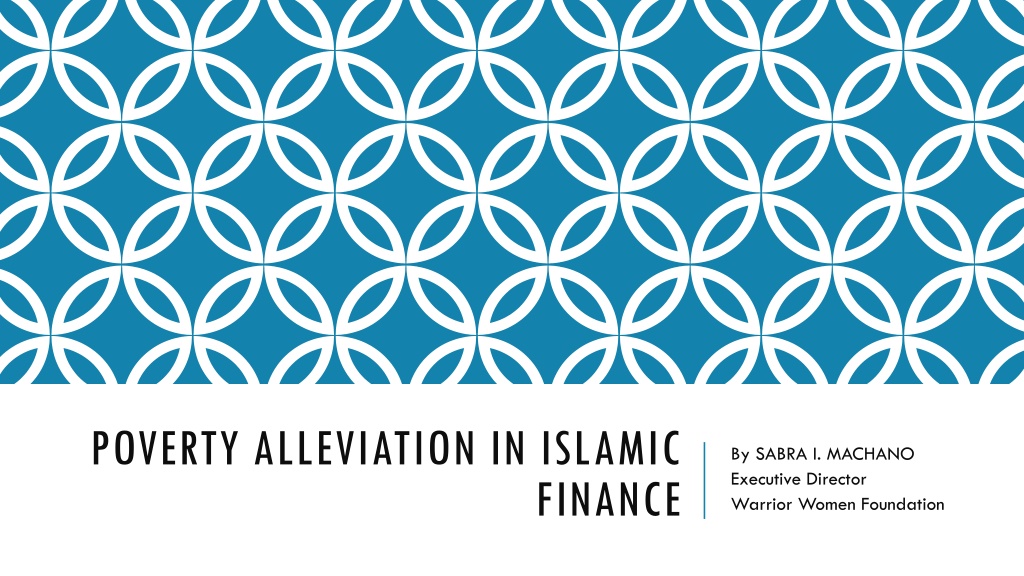
 undefined
undefined




